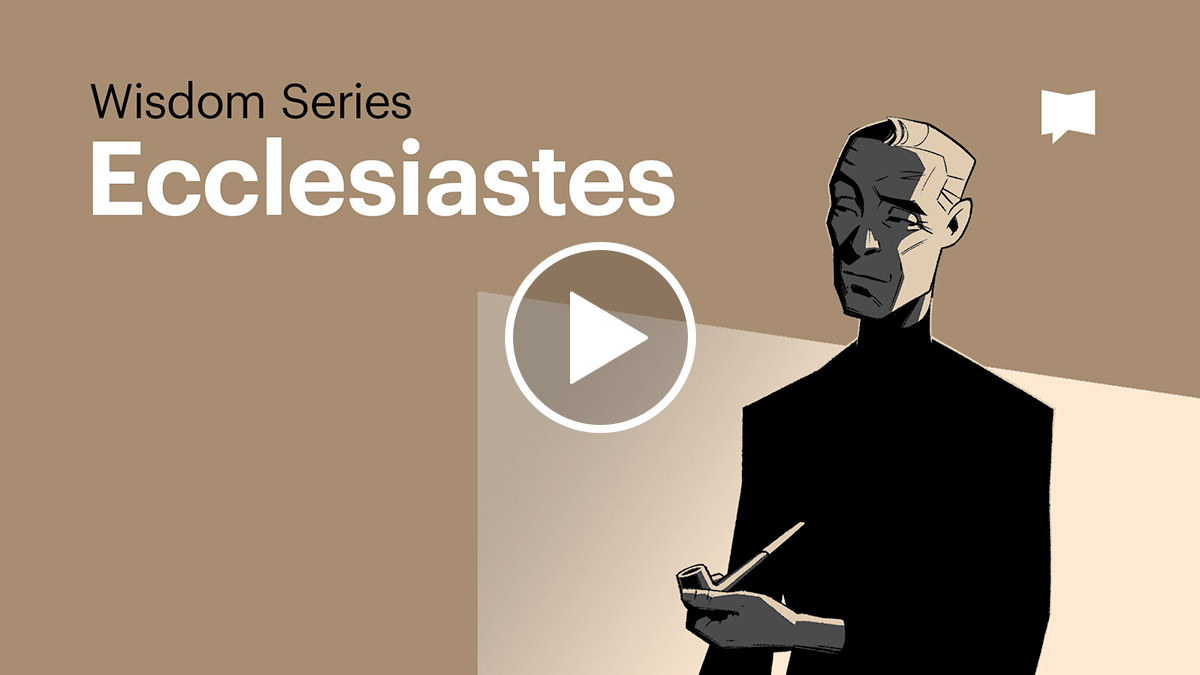| As we all continue to weather the COVID-19 pandemic, one of the experiences we’ve all been having is the feeling of losing control. Across nations and neighbourhoods, we’ve all been made helpless before the spread of the virus. Never in such a short amount of time have so many humans been forced to make drastic changes to their lives with work, food, family, and health. If we had any illusions about being in control of our lives, they’re long gone by now.And while this stripping away of control is a painful experience, according to the biblical book of Ecclesiastes, it’s one of the best worst things that can happen to us. One of the first steps toward biblical wisdom is a posture of total surrender before God. And nothing helps us get there quicker than losing control of our lives. This kind of loss can also help us rediscover the many simple gifts that God provides every day—if we have eyes to see them. In this week’s Church at Home, we’ll reflect on Ecclesiastes and ponder its surprising wisdom. | |||||||
| Listen | |||||||
|
|||||||
|
|
|||||||
| Watch | |||||||
 |
|||||||
|
|
|||||||
| Read and Discuss | |||||||
| Ecclesiastes 1:1-18 Read here One of the teacher’s fundamental frustrations in life is that despite all of the human and natural activity in the world, nothing really ever changes. Sure, humans progress in their understanding and technology, but the basic patterns of nature that determine our existence, weather, geology, and pandemics were in place before us and will endure long after us. All of our daily activities that seem so meaningful will be erased and forgotten. This perspective on the passage of time frustrates our attempts to master life; it’s like chasing after the wind.
|
|||||||
| Ecclesiastes 8:14-9:12 Read here If we are honest, the course of human life doesn’t work out very well according to a moral logic. Bad things happen to good people, and good things happen to bad people. And even if we do believe that God is working out some larger plan, from our perspective it seems that death and chance happen to us all. This makes all our attempts to “decode” God’s purposes for our world extremely difficult, and the teacher thinks we shouldn’t try. Rather, we should learn to accept whatever life brings our way and enjoy the many small gifts when they come, like a good meal, a close friend or spouse, or enjoyable work. These things can be appreciated fully only when we hold them with open hands.
|
|||||||
| Ecclesiastes 12:8-14 Read here While the teacher is not optimistic about our ability to understand the ultimate meaning of life, they do want to end on a more clear note. The teacher’s words are like pointy sticks (“goads”) that hurt when they poke you, but they can move you in the right direction. The teacher’s goal is for us to learn how to live and make our decisions from a place of humility before God, trusting that the divine purpose will set all things right one day. And if we feel like we’re in the dark until that day comes, it’s okay. It’s yet another reminder that we are not God, but rather images of God who depend on our creator for hope, meaning, and for life itself.
|
|||||||
 |

